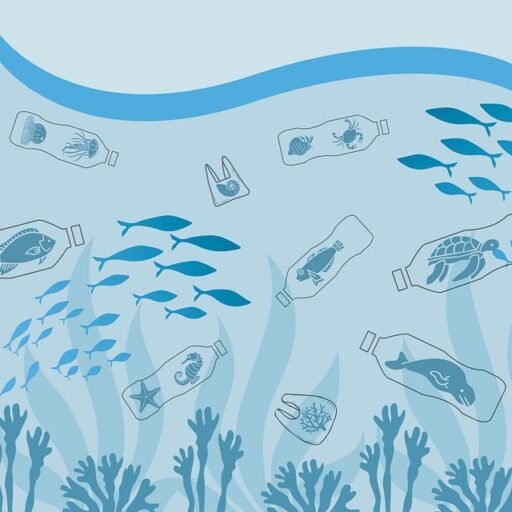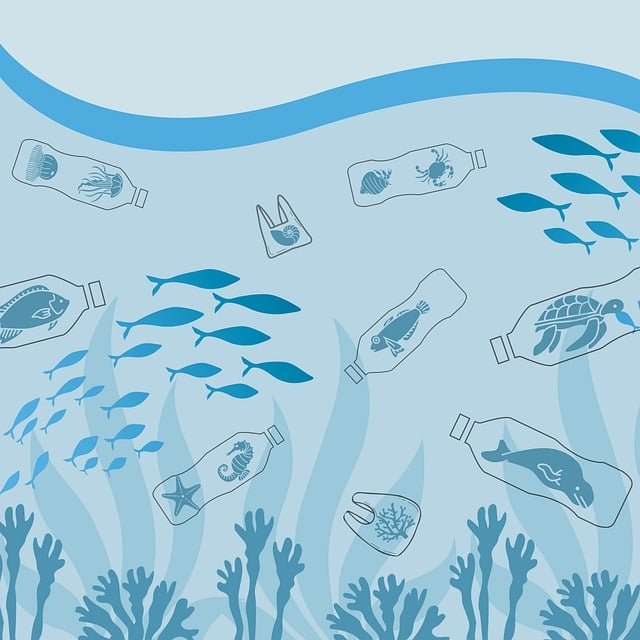## The Future of Plastic Waste Reduction: Innovation, Responsibility, and Collective Action
Plastic, a marvel of modern engineering, has become ubiquitous in our lives. From packaging to construction, its versatility and affordability have revolutionized industries and shaped consumer habits. However, this convenience comes at a steep environmental cost.
## ## The Problem: A World Drowning in Plastic
The very properties that make plastic so useful – its durability and resistance to degradation – have also transformed it into a persistent environmental hazard. Every year, millions of tons of plastic waste end up in landfills, oceans, and ecosystems worldwide. This plastic pollution has devastating consequences for wildlife, marine life, and even human health.

*Image Caption: The stark reality of plastic pollution in our oceans.*
## ## A New Wave of Solutions: Beyond Recycling
While recycling plays a crucial role in mitigating plastic waste, it’s not a standalone solution. The limitations of current recycling infrastructure and the complexities of different plastic types necessitate a multi-pronged approach. Fortunately, a new wave of innovation is emerging, offering promising solutions to tackle the plastic crisis head-on.
### ### Biodegradable and Compostable Plastics: Returning to the Earth
One of the most exciting developments is the rise of biodegradable and compostable plastics. These innovative materials are designed to break down completely into natural elements, leaving no harmful residues behind. Unlike traditional plastics, which can persist for centuries, these eco-friendly alternatives decompose in a matter of months, either in industrial composting facilities or even in backyard compost bins.
### ### Advanced Recycling Technologies: Closing the Loop
Traditional mechanical recycling has its limitations, often resulting in downcycling rather than true circularity. However, advanced recycling technologies are changing the game. Chemical recycling, for instance, breaks down plastics into their molecular building blocks, allowing for the creation of virgin-quality plastic from previously unrecyclable waste streams. This breakthrough has the potential to revolutionize the plastics industry and significantly reduce our reliance on fossil fuels for plastic production.

*Image Caption: A glimpse into the future of plastic recycling with advanced technologies.*
## ## Beyond Technology: Shifting Mindsets and Embracing Responsibility
While technological advancements offer hope, they are only part of the solution. Addressing the plastic crisis requires a fundamental shift in our consumption patterns and a collective embrace of responsibility.
### ### The Power of Consumer Choice: Voting with Our Wallets
As consumers, we wield immense power through our purchasing decisions. By choosing products with minimal packaging, opting for reusable alternatives, and supporting companies committed to sustainable practices, we can drive demand for change. Every conscious choice we make sends a powerful message to businesses, encouraging them to prioritize eco-friendly practices.
### ### From Individual Action to Collective Impact: The Role of Advocacy







